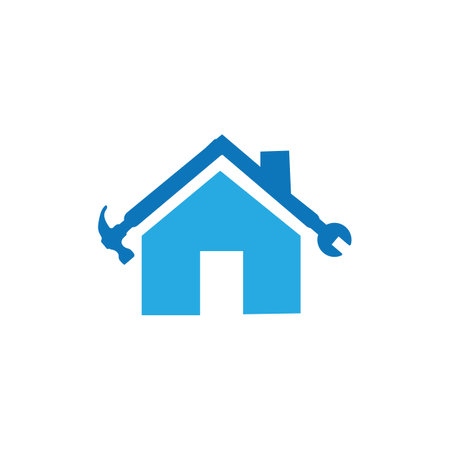Introduction to Rental Property Ownership
Owning rental property in the U.S. has long been seen as a pathway to building wealth and generating passive income. Whether youre an experienced investor or just getting started, understanding what it means to own rental property is key to making informed decisions.
What Is Rental Property Ownership?
Rental property ownership involves purchasing real estate with the goal of leasing it out to tenants. The owner becomes a landlord and earns income through monthly rent payments. This type of investment can generate consistent cash flow and appreciate in value over time.
Common Types of Rental Investments
There are several types of rental properties available in the U.S., each offering different levels of risk, return, and management requirements. Heres a simple breakdown:
| Type | Description | Ideal For |
|---|---|---|
| Single-Family Homes | A standalone home rented to one tenant or family. | First-time investors or those looking for lower maintenance. |
| Multi-Family Properties | A building with two or more units (e.g., duplexes, triplexes). | Investors seeking higher cash flow and multiple income streams. |
| Apartments | Larger buildings with many rental units, often professionally managed. | Experienced investors or investment groups. |
| Short-Term Rentals | Properties rented on platforms like Airbnb for days or weeks at a time. | Lifestyle investors or those in high-tourism areas. |
The Appeal for Investors
The idea of earning money while you sleep is one of the biggest attractions to owning rental property. It offers potential monthly income, tax advantages, and long-term appreciation. Additionally, many people like the idea of having a tangible asset that they can see and manage themselves. Compared to stocks or mutual funds, real estate feels more “real” to many investors.
Main Reasons People Invest in Rental Property:
- Steady Income: Rent payments provide regular cash flow.
- Diversification: Real estate adds variety to your investment portfolio.
- Pride of Ownership: Some enjoy being landlords and managing property directly.
- Tangible Asset: Unlike stocks, you can visit and improve your investment property.
This overview gives you a starting point to understand why rental property ownership is so popular in the U.S. In the next section, we’ll dive deeper into the specific benefits that attract people to this type of investment.
2. Financial Benefits of Rental Properties
Investing in rental properties in the U.S. can offer a variety of financial advantages that make it an attractive option for both new and experienced real estate investors. From generating consistent income to long-term wealth building, here are some key financial benefits you should know about:
Steady Cash Flow
One of the biggest perks of owning rental property is the potential for monthly rental income. After covering expenses like mortgage payments, property taxes, insurance, and maintenance, any remaining income is your cash flow. A well-managed property in a good location can provide reliable income month after month.
Example Monthly Cash Flow Breakdown
| Description | Amount (USD) |
|---|---|
| Monthly Rent Collected | $2,000 |
| Mortgage Payment | $1,200 |
| Property Taxes & Insurance | $300 |
| Maintenance & Miscellaneous | $200 |
| Net Cash Flow | $300 |
Property Appreciation
Over time, real estate tends to increase in value—a concept known as appreciation. This means that the longer you hold onto your property, the more its likely to be worth when you decide to sell. While appreciation isnt guaranteed and depends on market conditions, many areas in the U.S. have seen steady growth over the years.
Tax Advantages
The U.S. tax code offers several benefits for rental property owners. You can deduct many expenses related to owning and managing a rental property, such as:
- Mortgage interest
- Property taxes
- Operating expenses (repairs, utilities)
- Depreciation (a non-cash expense that reduces taxable income)
You might also benefit from long-term capital gains tax rates if you sell the property after holding it for more than a year.
Leverage Opportunities
A unique advantage of real estate investing is leverage—the ability to use borrowed money to increase your return on investment. By putting down a percentage of the propertys price and financing the rest through a mortgage, you can control a valuable asset with less upfront capital. If property values rise or your rental income grows, your returns can significantly outpace your initial investment.

3. Challenges and Risks of Being a Landlord
Owning rental property can be rewarding, but its not without its challenges. Becoming a landlord in the U.S. means taking on several responsibilities and facing potential risks that go beyond simply collecting rent each month. Whether youre managing a single-family home or multiple units, heres what you need to consider.
Legal Responsibilities and Compliance
Landlords must follow federal, state, and local laws that protect tenant rights. This includes fair housing regulations, building codes, and habitability standards. Failing to comply can lead to legal action or hefty fines. You’re also responsible for properly handling security deposits, providing required disclosures (like lead paint information), and following eviction procedures correctly.
Common Legal Obligations for Landlords
| Legal Requirement | Description |
|---|---|
| Fair Housing Act | Prohibits discrimination based on race, color, religion, sex, national origin, disability, or familial status. |
| Security Deposit Laws | Laws vary by state; typically require deposits to be returned within a certain timeframe after lease termination. |
| Habitability Standards | The property must be safe and livable with working plumbing, heat, electricity, etc. |
| Eviction Process | You must follow proper legal steps when evicting a tenant for non-payment or lease violations. |
Tenant-Related Issues
Your tenants play a big role in how smooth—or stressful—your experience as a landlord will be. Problematic tenants can cause late payments, property damage, neighbor disputes, or even legal headaches. Even with background checks and screening procedures, there’s always some level of unpredictability involved.
Potential Tenant Challenges
- Late or missed rent payments: Can impact your cash flow and mortgage obligations.
- Difficult communication: Some tenants may be uncooperative or hard to reach when issues arise.
- Property damage: Repairs due to negligence or intentional damage can be costly.
- No-shows for showings: Time lost scheduling viewings that don’t happen.
Financial Risks and Unexpected Costs
A major risk of owning rental property is dealing with unexpected expenses. These could include emergency repairs like fixing a burst pipe or replacing an HVAC unit. Vacancy periods—when the property isn’t rented—can also eat into profits quickly. Plus, if youre financing the property with a mortgage, you still owe monthly payments whether or not you have rental income coming in.
Common Financial Risks for Property Owners
| Risk | Description |
|---|---|
| Vacancies | No rental income during unoccupied periods means youll cover all costs yourself. |
| Maintenance and Repairs | Aging properties often require ongoing upkeep that adds up over time. |
| Property Taxes Increases | If local taxes rise, your profit margins shrink unless you raise rent accordingly. |
| Lawsuits and Liability Claims | If someone gets injured on your property due to neglect, you may face legal claims. |
The Time Commitment Involved
Being a landlord isnt always passive income. Managing rental properties takes time—for tenant communication, maintenance coordination, bookkeeping, and more. If youre doing it all yourself without a property manager, expect to spend evenings and weekends handling issues that come up unexpectedly.
A Few Questions to Ask Yourself:
- Do I have time to respond to maintenance requests promptly?
- If my tenant stops paying rent, do I know how the eviction process works in my state?
- If something breaks at 2 AM, am I ready to handle it—or hire someone who can?
The challenges of being a landlord are real—but knowing what to expect helps you prepare better. For many property owners in the U.S., these risks are manageable with good planning and professional help when needed.
4. Market Considerations and Location Factors
When it comes to owning rental property in the U.S., location plays a huge role in determining your investment’s success. Local real estate markets, neighborhood demographics, and broader economic trends all directly impact how much rent you can charge, how easy it is to find tenants, and how much your property might appreciate over time.
Understanding Local Real Estate Markets
Every city—and even neighborhood—has its own housing market conditions. Some areas may be experiencing rapid growth, while others could be stagnating or declining. For example, cities like Austin, Texas or Raleigh, North Carolina have seen significant population growth and increased demand for rentals in recent years. On the other hand, areas with high vacancy rates or declining populations may pose more risk for landlords.
Key Market Indicators to Watch:
| Indicator | Why It Matters |
|---|---|
| Rental Vacancy Rate | A low vacancy rate suggests strong demand for rentals. |
| Home Price Trends | Rising prices can mean higher property values but also higher entry costs. |
| Rent Growth | Shows whether rents are increasing over time, which affects income potential. |
| Job Market Strength | A healthy job market often attracts more renters to an area. |
The Importance of Neighborhood Demographics
Demographics shape who your renters are likely to be. Are you investing in a college town? You’ll likely be renting to students. Is the area popular with young professionals or families? Each group has different needs and expectations when it comes to housing. Understanding this helps you choose the right type of property and set competitive rent prices.
Questions to Ask About the Neighborhood:
- Is it close to schools or universities?
- Are there major employers nearby?
- What is the average household income?
- How safe is the area?
- Are there amenities like public transportation, parks, or shopping centers?
Economic Trends That Influence Rental Performance
Larger economic trends—like interest rates, inflation, and employment levels—also affect rental property performance. For instance, during times of economic uncertainty, more people may rent rather than buy homes, boosting demand for rental units. Conversely, if mortgage rates drop significantly, some renters may decide its time to become homeowners.
Examples of Economic Factors Affecting Rentals:
| Economic Factor | Potential Impact on Rental Property |
|---|---|
| Interest Rates | Higher rates can reduce home buying and increase rental demand. |
| Inflation | Might allow landlords to raise rents but also increases maintenance costs. |
| Unemployment Rates | High unemployment can lead to missed rent payments or higher vacancy rates. |
Selecting the right location means doing your homework on both local data and national trends. The better you understand these market considerations and location factors, the more informed your investment decisions will be—and that’s key to being a successful rental property owner in the U.S.
5. Maintenance, Management, and Time Commitment
Owning a rental property in the U.S. isnt just about collecting rent checks—it also involves ongoing maintenance, daily management tasks, and a significant time commitment. Whether youre managing a single-family home or multiple units, understanding what goes into the upkeep and administration of your property is key to being a successful landlord.
Day-to-Day Responsibilities
As a landlord, youll need to handle various day-to-day responsibilities. These can include:
- Responding to tenant repair requests
- Scheduling regular maintenance (like HVAC servicing or lawn care)
- Handling rent collection and late payments
- Dealing with tenant disputes or complaints
- Ensuring the property complies with local codes and safety regulations
Property Upkeep
Keeping your rental property in good condition not only helps you attract and retain tenants but also protects your investment. Regular upkeep includes both preventive maintenance and unexpected repairs.
Common Maintenance Tasks
| Maintenance Task | Frequency | Estimated Cost (USD) |
|---|---|---|
| HVAC Inspection | Annually | $100–$300 |
| Lawn Care | Weekly/Biweekly (seasonal) | $50–$150/month |
| Pest Control | Quarterly | $100–$200/visit |
| Plumbing Repairs | As needed | $150–$500+ |
| Roof Inspection | Every 2–3 years | $100–$300 |
Self-Managing vs. Hiring a Property Manager
You have two main options when it comes to managing your rental: doing it yourself or hiring a professional property manager. Each has its pros and cons depending on your time availability, experience, and budget.
Comparison Table: Self-Management vs. Property Manager
| Self-Managing | Hiring a Property Manager | |
|---|---|---|
| Time Commitment | High – You handle everything yourself | Low – Manager handles day-to-day tasks |
| Cost | No management fees, but more time-consuming | Typically 8%–12% of monthly rent as fee |
| Control Over Property | Total control over decisions and tenant selection | You rely on the managers judgment and systems |
| Expertise Needed | You must learn landlord-tenant laws and best practices | Managers are already experienced and knowledgeable |
What’s Right for You?
If you enjoy being hands-on and want to save money, self-managing may be the way to go—especially if you live near your rental property. On the other hand, if youre short on time or managing multiple properties, hiring a property manager can reduce stress and keep things running smoothly.
No matter which route you choose, make sure you have a system in place for responding quickly to maintenance issues and keeping up with routine tasks. A well-maintained property leads to happier tenants and fewer long-term problems.
6. Is Rental Property Right for You?
Before jumping into rental property ownership, it’s important to ask yourself if becoming a landlord truly fits your financial goals, risk tolerance, and lifestyle. Owning rental property can offer steady income and long-term growth, but it also comes with responsibilities and challenges that not everyone is ready for.
Your Financial Goals
Are you looking for monthly cash flow, long-term appreciation, or tax benefits? Rental properties can help you achieve these goals—but only if managed properly. Consider how a property investment compares to other options like stocks or mutual funds in terms of returns and liquidity.
| Financial Goal | How Rental Property Helps |
|---|---|
| Monthly Income | Rental payments can provide consistent cash flow |
| Long-Term Growth | Property value may increase over time |
| Tax Benefits | Deductions on mortgage interest, depreciation, repairs |
Your Risk Tolerance
No investment is risk-free—and rental properties are no exception. From market downturns to bad tenants, being a landlord involves dealing with the unexpected. Ask yourself: How comfortable are you with potential vacancies or emergency repairs?
Common Risks to Consider:
- Property damage from tenants or natural events
- Lack of rent payment or eviction issues
- Fluctuating housing market values
Your Lifestyle Preferences
If youre someone who enjoys hands-on work or has time to manage properties (or the budget to hire a property manager), being a landlord might be a good fit. However, if you travel often, dislike dealing with maintenance issues, or prefer passive investments, this path could be more stressful than rewarding.
A Quick Self-Check:
| Question | If Yes… |
|---|---|
| I have extra time or can hire help? | You can better handle day-to-day management tasks |
| I’m okay taking financial risks? | You’re more prepared for unexpected costs or vacancies |
| I want steady income over quick profits? | You may benefit more from long-term rentals |
The decision to own rental property is personal. Its not just about the numbers—its also about whether youre ready for the responsibilities that come with it. Take time to assess your comfort level and long-term plans before making the leap.


